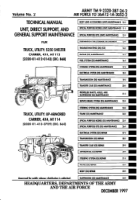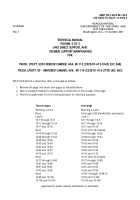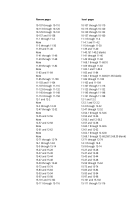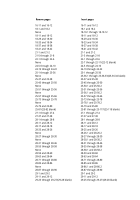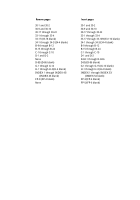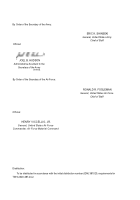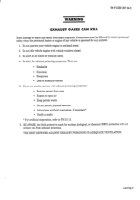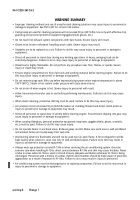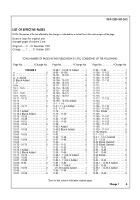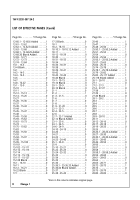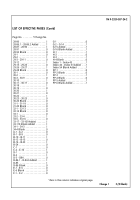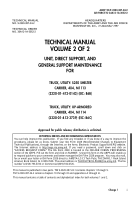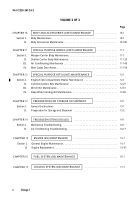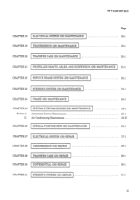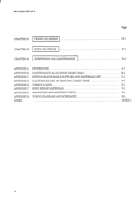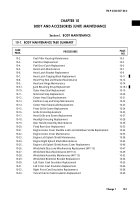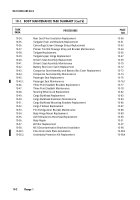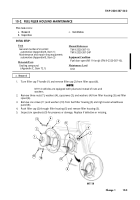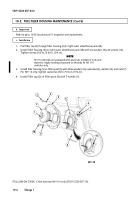TM-9-2320-387-24-2 - Page 8 of 1555
TM 9-2320-387-24-2
warning b
Change 1
WARNING SUMMARY
• Improper cleaning methods and use of unauthorized cleaning solutions may cause injury to personnel or
damage to equipment. See TM 9-247 for correct information.
• Compressed air used for cleaning purposes will not exceed 30 psi (207 kPa). Use only with effective chip
guarding and personal protective equipment (goggles/shield, gloves, etc.).
• Do not touch hot exhaust system components with bare hands. Severe injury will result.
• Gloves must be worn whenever handling winch cable. Severe injury may result.
• Seatbelts are to be replaced as a set. Failure to do this may cause injury to personnel or damage to
equipment.
• Direct all personnel to stand clear during any hoisting operations. A heavy, swinging load can be
extremely dangerous. Failure to do so may cause injury to personnel or damage to equipment.
• Diesel fuel is highly flammable. Do not perform any procedure near fires, flames, or sparks. Severe
injury or death may result.
• Ensure engine compartment is free of all tools and working material before starting engine. Failure to do
this may cause injury to personnel or damage to equipment.
• Do not remove surge tank filler cap before depressurizing system when engine temperature is above
190°F (88°C). Steam or hot coolant under pressure will cause severe burns.
• Do not drain oil when engine is hot. Severe injury to personnel will result.
• Allow transmission/transfer case to cool before performing maintenance. Failure to do this may cause
injury.
• When steam cleaning, protective clothing must be used. Failure to do this may cause injury.
• Air pressure must not exceed 50 psi (345 kPa) when air checking forward and direct clutch piston or
injury to personnel or damage to equipment may result.
• Direct all personnel to stand clear of vehicle before starting engine. Transmission slipping into gear may
cause injury to personnel or damage to equipment.
• When sanding fiberglass, personal protective equipment (respirator, goggles/shield, gloves, coveralls,
etc.) must be used. Failure to do this may cause injury.
• Do not operate heater in enclosed areas. Exhaust gases can kill. Make sure work area is well ventilated
and exhaust fumes are routed away from test area.
• Drycleaning solvent is flammable and will not be used near an open flame. A fire extinguisher will be
kept nearby when solvent is used. Use only in well-ventilated places. Failure to do this may result in
injury to personnel or damage to equipment.
• Always wear eye protection around R-134a or when servicing the air-conditioning system. Exercise
extreme care when handling R-134a; direct contact between R-134a and skin may cause frostbite. Never
smoke in areas where R-134a is used or stored. Ensure adequate ventilation whenever R-134a is being
discharged. Personnel with a history of cardiac rhythm abnormalities should be made aware of potential
aggravation as a result of exposure to R-134a. Failure to do so may result in injury to personnel.
• Air-conditioning system must be discharged prior to replacing components. Failure to do this may result in
injury to personnel or damage to equipment.
Back to Top

